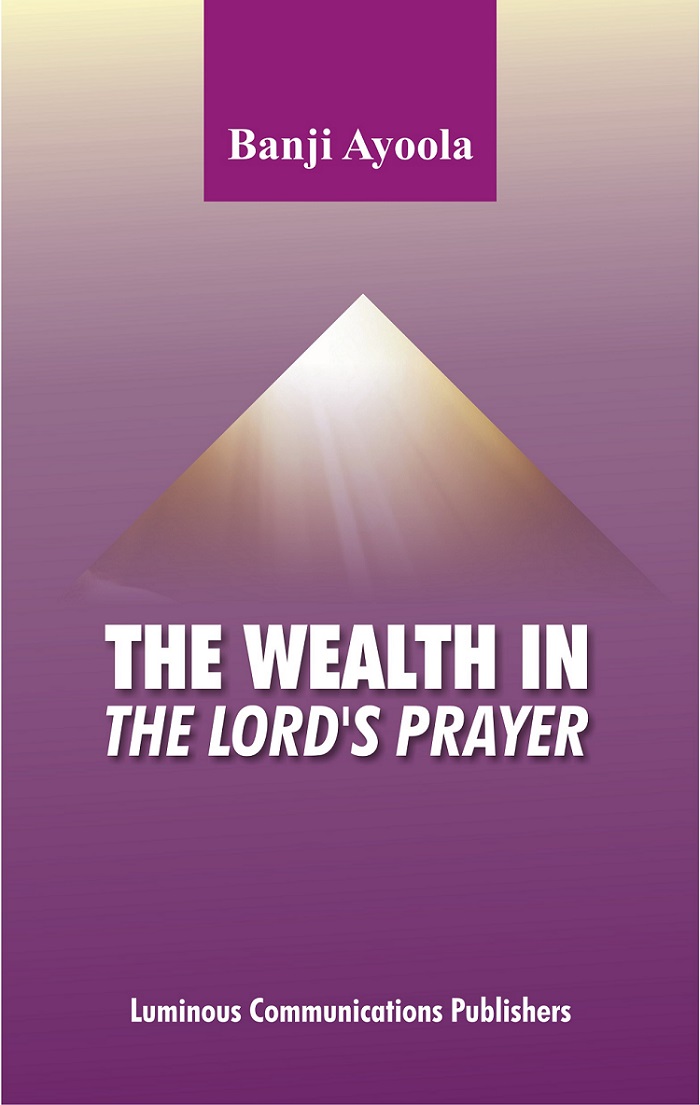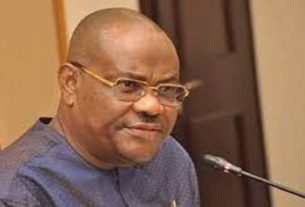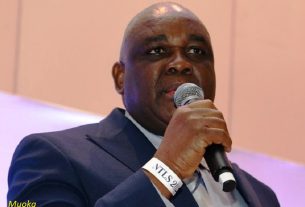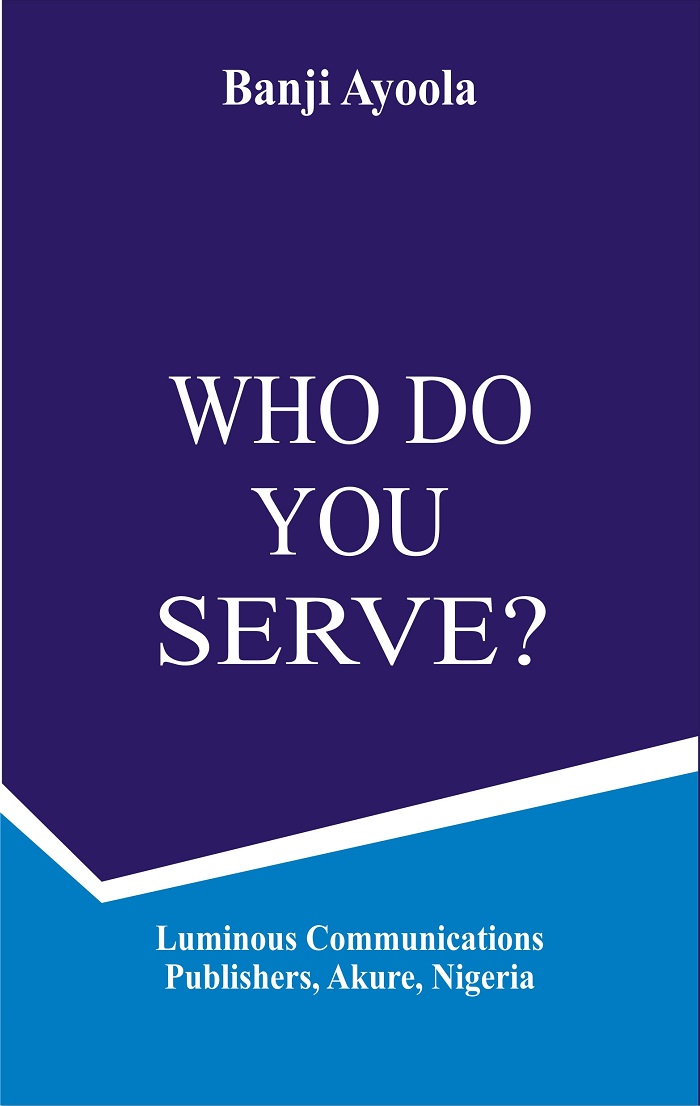Lagos State Governor, Mr Babajide Sanwo-Olu (middle); Deputy Governor, Dr. Obafemi Hamzat (right); and Commissioner for Information and Strategy, Mr Gbenga Omotoso during a media briefing on the State Government’s position on the recommendations of the Judicial Panel of Inquiry on #EndSARS in Lagos House, Ikeja…yesterday
- Accepts 11 of 32 recommendations, to forward 14 to Federal Government
- Rejects that there were killings at Lekki Toll Gate
- Falana says state judicial panels can indict military, police officers
- Falz, Mr Marcaroni decline Sanwo-Olu’s invitation for peace walk
Lagos State Government has released the white paper on the report submitted by the judicial panel set up to probe cases of police brutality in the state.
It rejected some of the conclusions reached by the Judicial Panel of Inquiry into last year’s #EndSARS protest, including those that had to do with deaths or massacres from military gunshots at Lekki Toll Gate.
Specifically, it faulted the panel’s report that nine persons were killed at the toll gate when soldiers stormed the protest ground to disperse the protesters.
The state’s commissioner for information, Mr Gbenga Omotoso, in a statement on Tuesday, announced the release of the white paper.
The development comes two weeks after a four-member white-paper committee was set up by Babajide Sanwo-Olu, governor of Lagos, following the submission of the panel’s report.
On November 15, the panel had submitted two reports — one on police brutality cases and another on the Lekki incident investigation.
According to the white paper released on Tuesday, the state government said not all the recommendations in the report would be accepted.
“Lagos State Government accepts 11 out of the 32 recommendations made by the JPI in its report of 15th November 2021, rejected one (1) and accepted 6 (six) with modifications,” the document reads.
“Fourteen (14) recommendations fall outside the powers of Lagos State Government and will be forwarded to the Federal Government for consideration.”
On the deaths recorded in the judicial panel report, the white-paper committee said the details in the document are insufficient to hold that the victims listed in the panel’s report were killed at the Lekki tollgate.
“This finding of nine (9) deaths at LTG on 20 October is even more baffling because apart from listing out their names in that form at pages 297-298, the JPI offered no explanation regarding circumstances of their death. The names simply sprang up at pages 297-298 of the report without any justification,” the committee said.
“On the basis of the above fundamental inconsistencies in the findings the JPI regarding the nine (9) deaths at LTG, and particularly because the findings are clearly and mainly not supported by evidence before the JPI as attested to by the JPI itself, when it said there was no contrary evidence to that of Prof. Obafunwa that only one person died at LTG of gunshot wounds at LTG on 20th October 2020, the Government is therefore unable to accept the finding that nine people died of gunshot wounds at LTG on 20th October 2020.”
In the White Paper, the government described the claim of the panel that nine persons were shot dead as “assumptions and speculations”.
The Lagos State Judicial Panel of Inquiry on Restitution for Victims of SARS-related Abuses and Other Matters had on November 15, 2021, submitted its report after which Sanwo-Olu set up a White Paper committee.
The panel was inaugurated on October 19, 2020, to look into complaints of citizens against human rights abuses by the police.
Following the incident at the Lekki Toll Gate on October 20, 2020, the Terms of Reference of the Panel was expanded to cover that incident.
The Panel sat for well over one year and took testimonies of petitioners, witnesses, experts and lawyers.
The submission of the panel that there was indeed a massacre has since attracted the outrage of Nigerians and the international community who called for the prosecution of the offending officers.
The four-member committee on the report was led by Lagos State Attorney-General and Commissioner for Justice, Mr. Moyosore Onigbanjo (SAN).
Other members of the committee are: Commissioner for Youths and Social Development, Mr. Segun Dawodu; Special Adviser, Works, and Infrastructure, Engr. (Mrs) Aramide Adeyoye and Permanent Secretary, Cabinet Office, Mrs. Tolani Oshodi.
According to the leaked report of the judicial panel, at least nine #EndSARS protesters were killed at the Lekki tollgate on October 20, 2020.
The report listed 48 names as those who were casualties of the Lekki incident of October 20, 2020.
Among the 48 casualties listed, 24 sustained gunshot injuries, while 15 others were assaulted by soldiers and police.
The judicial panel was inaugurated on October 19, 2020, to look into complaints of citizens against human rights abuses by the police. But following the incident at the Lekki Toll Gate on October 20, 2020, the Terms of Reference of the panel were expanded to cover that incident.
The panel sat for over one year, listening to testimonies of petitioners, witnesses, experts, and lawyers.
The panel treated 235 petitions and awarded N410 million as compensation to 70 victims.
Of the 32 recommendations made by the Judicial Panel of Inquiry, the state government accepted 11; rejected one; and accepted six with modifications.
Also, 14 recommendations fell outside the powers of the state government and would be forwarded to the Federal Government for consideration.
Earlier, while briefing on his government’s position on recommendations of the Panel, Governor Babajide Sanwo-Olu had said Lagos State deserves true healing after the protests.
Speaking at State House, Alausa, Sanwo-Olu disclosed that his government was committed to bringing closure to the “painful episode”. He said the state faces the hard choice of restoring harmony or doing itself great harm, urging residents to join his administration in strengthening harmony and putting Lagos on the path of peace.
He urged the rejection of persons fueling anarchy and suspicion; those who cling to the unsubstantiated belief that carries no weight of verifiable evidence while choosing emotion over facts.
He noted that his administration is ready to facilitate better communication between youths and the security machinery to resolve issues before they become intractable.
During a press conference earlier on Tuesday at the Government House, Sanwo-Olu had said, “It is with a great sense of responsibility that I address you today on the reactions that have trailed the release of the Lagos EndSARS panel report submitted to me about two weeks ago and now it has played out in public discourse since then.
“We owe it to you, the people of Lagos to constantly speak and engage with you in easy times, we’ll never shy away from making our case while also ensuring that we listen to you.
“We as an administration are determined that the next steps that we’ll be taking in this process of coming to terms with the event of October 2020 must bring closure to a painful episode in the history of our state, with the release of the white paper later today.
“This in my view is a moment that beckons to us to define who and what we are, to be a centre of excellence, we must be a centre of truth, to be a prosperous city, we must establish ourselves as a peaceful entity and to achieve the greater Lagos of our dreams, we must learn to live in harmony.
The governor also disclosed he would be leading ‘A Walk for Peace’ in December to herald healing of the land, and extended an open invitation to youths, members of the diplomatic corps, civil society groups, students and the media, as well as other stakeholders.
He specifically invited Folarin Falana (Falz), Debo Adebayo (Mr. Marcaroni), Dele Farotimi, Temitope Majekodunmi, Segun Awosanya (Segalinks), Adedotun (Just Detoun), Seun Kuti, Commissioner of Police, Hakeem Odumosu and Commander of Rapid Response Squad (RRS), CSP Yinka Egbeyemi, and others to join him in the “historic march for our dear Lagos”.
He said: “Nobody will build this city for us. Let us show the world who we are. We are Lagosians, a people of great renown, driven by the irrepressible spirit of Lagos. It is a testimony to our strength and resilience as a people that, despite the huge losses incurred because of these terrible incidents, we have bounced back, with our economy as vibrant and virile as ever. I have no doubt whatsoever that our prospects are as bright as ever and the best lies ahead of Lagos State and Nigeria.
But in separate reactions, Falz and Mr. Marcaroni rejected Sanwo-Olu’s invitation to the peace walk.
Mr. Marcaroni said genuine peacemaking should begin by first implementing the recommendations of the panel.
Falz described the walk as a very disrespectful joke.
Segalink, however, said the governor has shown leadership with his mature response.
Mr. Marcaroni said: “I humbly decline the invitation of Mr. Governor…Before there can be healing, the government has to be sincere. There must be acceptance of wrongdoings and willingness to correct them.
“The last walk wey I do, na so dem bundle me, strip me naked, brutalise and dehumanise me. I no carry gun, I no carry weapon. As dem dey beat me, dem dey ask why I dey disturb Mr. Governor. Now dem say make I come do walk. For another round of beating?”
Falz said: “This suggestion of a ‘walk of peace’ sounds like a joke and a very disrespectful one at that. People were murdered in cold blood and absolutely no iota of justice has been served, more than a year after. How can there be peace without justice?”
Meanwhile, reacting to challenges from some quarters on the legality of state judicial panels to indict military and police officers, human rights lawyer, Femi Falana, issued a statement yesterday, arguing: “Since the Tribunal of Enquiry Act is not a law of general application in the country, it is a dangerous submission to say that only a commission of inquiry instituted by the President is competent to investigate the violations of human rights or murder committed by Federal officers in any state of the Federation.
“In fact, it is embarrassing that some public officers who had campaigned for the sovereignty of state governments within the federation before 2015 have turned round to question the powers of state governments to legislate on matters in the residual list including the Tribunal of Inquiry Laws.
“It is a matter of common knowledge that before the #EndSARS protests last year, every state government in the country has been setting up administrative and judicial commissions of inquiry.”
According to him, “the controversy surrounding the legality of any panel set up under the Tribunal of Enquiry Law of Lagos State was laid to rest as far back as 1987.
“For the avoidance of doubt, the validity of the law was upheld by the Court of Appeal in the case of Williams v Dawodu (1998) 4 NWLR (PT 87) 189 at 212- 213 where Akpata JCA (as he then was) held inter alia: “In any event, the Learned Trial Judge was not entitled to enquire into the constitutionality of the Tribunal of Inquiry Law (CAP 135) Lagos State, even if Section 5(e) and 14(2) thereof appeared to be unconstitutional. The Tribunals of Inquiry Law was promulgated on December 4, 1968. Thus, when the 1979 Constitution of the Federal Republic of Nigeria was promulgated as of the 1st October 1979 the Tribunal of Inquiry Law qualified as an ‘Existing Law’ under Section 274 of the same Constitution.”
He submitted: “Military and police personnel indicted for murder and allied offences are liable to be prosecuted by the Attorney-General of Lagos State as the Attorney-General of the Federation lacks the power to prosecute any person accused of committing state offences.”







